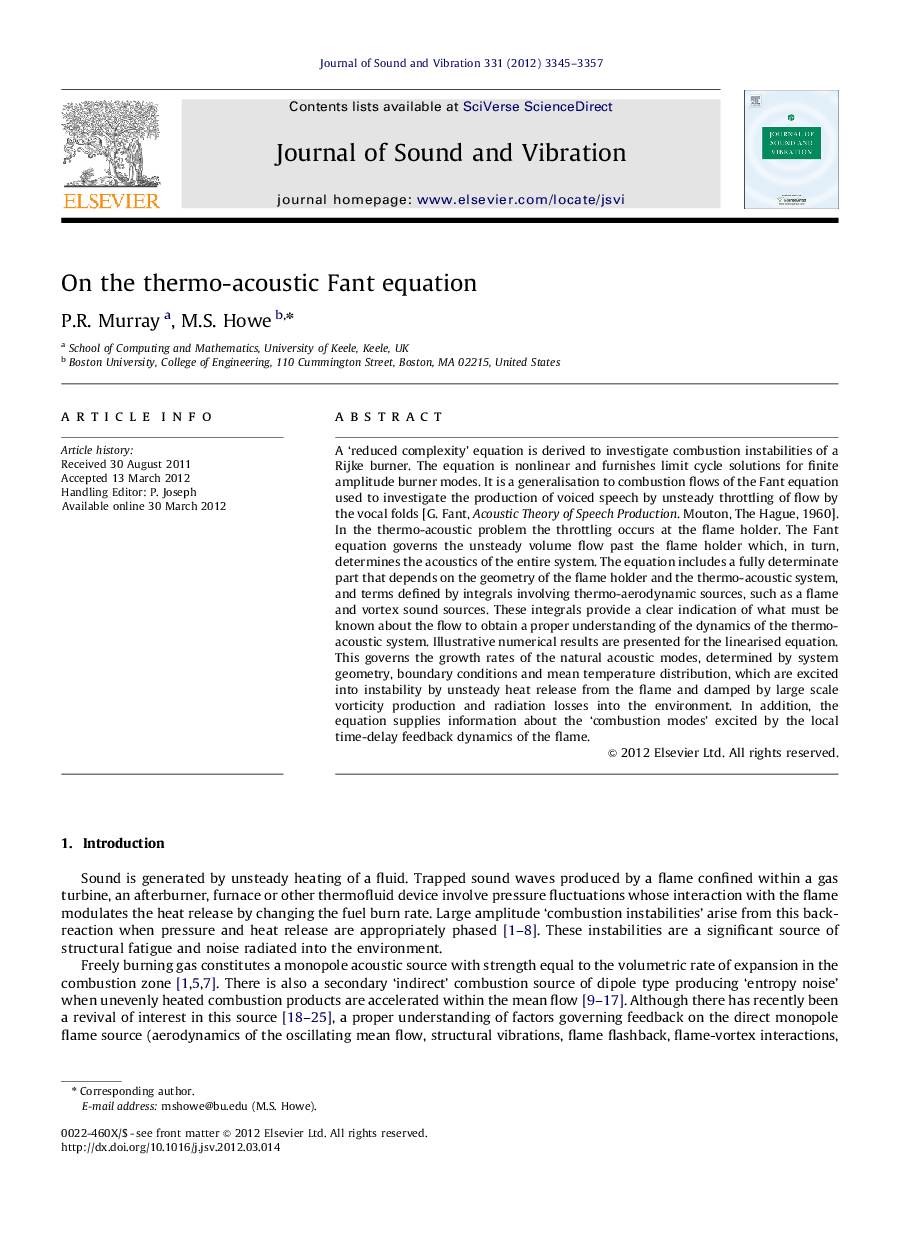| کد مقاله | کد نشریه | سال انتشار | مقاله انگلیسی | نسخه تمام متن |
|---|---|---|---|---|
| 288104 | 509605 | 2012 | 13 صفحه PDF | دانلود رایگان |

A ‘reduced complexity’ equation is derived to investigate combustion instabilities of a Rijke burner. The equation is nonlinear and furnishes limit cycle solutions for finite amplitude burner modes. It is a generalisation to combustion flows of the Fant equation used to investigate the production of voiced speech by unsteady throttling of flow by the vocal folds [G. Fant, Acoustic Theory of Speech Production. Mouton, The Hague, 1960]. In the thermo-acoustic problem the throttling occurs at the flame holder. The Fant equation governs the unsteady volume flow past the flame holder which, in turn, determines the acoustics of the entire system. The equation includes a fully determinate part that depends on the geometry of the flame holder and the thermo-acoustic system, and terms defined by integrals involving thermo-aerodynamic sources, such as a flame and vortex sound sources. These integrals provide a clear indication of what must be known about the flow to obtain a proper understanding of the dynamics of the thermo-acoustic system. Illustrative numerical results are presented for the linearised equation. This governs the growth rates of the natural acoustic modes, determined by system geometry, boundary conditions and mean temperature distribution, which are excited into instability by unsteady heat release from the flame and damped by large scale vorticity production and radiation losses into the environment. In addition, the equation supplies information about the ‘combustion modes’ excited by the local time-delay feedback dynamics of the flame.
► Reduced complexity, nonlinear “Fant” equation is derived for a Rijke burner.
► Governs unsteady flow past the flame holder and the acoustics of the entire system.
► Application to thermo-acoustic instabilities and damping by vorticity production.
Journal: Journal of Sound and Vibration - Volume 331, Issue 14, 2 July 2012, Pages 3345–3357